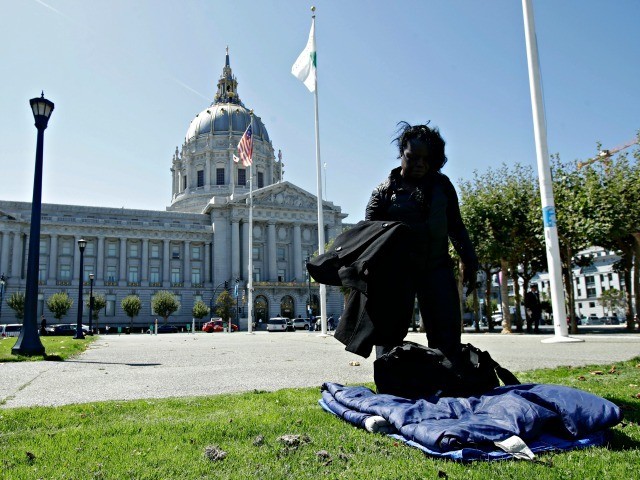A federal report shows California is home to more than 50 percent of the people who live on the streets or in shelters. In San Francisco, workers tasked with helping that demographic have names of 236 people who are “severely mentally ill” and 4,000 others on a longer list.
The San Francisco Chronicle used the example of a 42-year-old man who had been “adrift on the city’s streets for more than a decade.” Police had fielded 118 calls to 911 in 2019 on the man, whom the newspaper refers to as “Client One” to protect his identity.
This client, who also sells his body to pay for his heroin habit, is just one of more than 200 people in the city who are both homeless and suffer from mental illness. the Chronicle reported:
That list, called the ‘shared priority project,’ is the city’s latest attempt to force its fragmented departments and nonprofits to work together to help its most vulnerable. The idea is to specifically focus on 237 of the toughest cases — and often those highest risk of dying — and do whatever it takes to get then the services and housing they need.
Four months in, the results … provide a window into San Francisco’s difficulties in caring for those in crisis. These clients face intense medical and psychological problems while navigating a disjoined, overwhelmed behavioral health care system.
The Chronicle reported that this project is part of a broader effort through legislation passed by the city’s board of supervisors, the Mental Health SF bill.
And it is having some success, with 43 of the people on the short list having “moved into permanent support housing” and more placed in shelters or are awaiting placement.
But, “Meanwhile, 101 are still on the streets, including 34 whom officials can’t find,” the Chronicle reported. “Nine have died from overdoses or chronic health conditions.”
The Chronicle reports that the 237 people on the list represents a small portion of a larger list that counts 4,000 people who are suffering from a dangerous “trifecta” — homelessness, mental illness, and drug addiction.
The report concluded with the news that the 42-year-old man at the start of the story had been hospitalized and was in intensive care following a drug overdose.
One San Francisco social worker said drugs make the homelessness problem much more difficult, including a “dramatic rise” in methamphetamine.
“I don’t think the system even nows how to handle this population,” Erik Deiters said.
Follow Penny Starr on Twitter

COMMENTS
Please let us know if you're having issues with commenting.